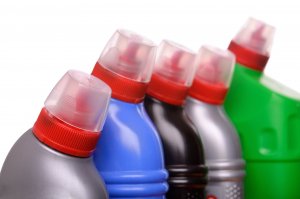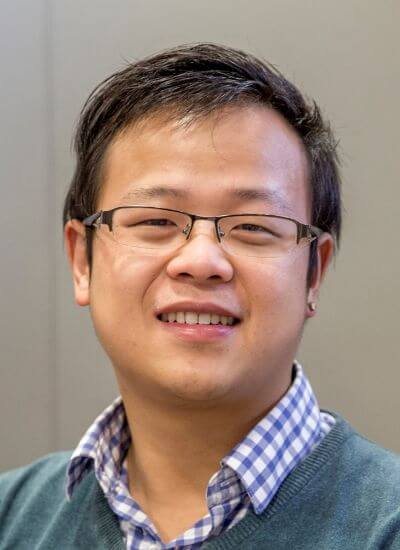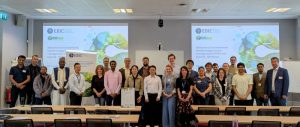Aim:
Per- and Polyfluoroalkyl Substances (PFAS), known as ‘forever chemicals’, are extensively used in industrial and consumer applications due to their exceptional persistence properties. Attributed to the enduring characteristics, these substances have a detrimental impact on human health when their residues persist in the environment.

While current remediation approaches primarily rely on physical adsorption and chemical oxidation processes, recent studies have emerged regarding the potential of microbial degradation as a cost-effective solution. However, the effectiveness of this approach is still subject to debate, necessitating further investigations. The proposed WG brings together experts from multidisciplinary fields and collaborate on researching, developing, and promoting cutting-edge bioremediation strategies that target PFAS contamination across various environmental matrices, including water, wastewater, and soil.
Interested?

Dr Tao Lyu has been working at Cranfield University since April 2020. He is a lecturer in Green Technologies and Environmental Engineering MSc course director (JSU-CU Institute).
Dr Lyu works at the intersection of environmental engineering, chemistry and nanoscience, with a focus on sustainable wastewater treatment and natural water restoration. His PhD research focused on emerging organic contaminants (micropollutants) removal in water and wastewater by nature-based solutions, in particular constructed wetlands. He expanded his research area on advanced nanotechnology development (e.g. nanobubble technology) for natural water restoration, eutrophication control, harmful algal bloom removal and sediment remediation. Email: T.Lyu@cranfield.ac.uk
Latest news
See here for recent items on this topic, and for more news click on the tags for PFAS and PFAS WG
A YouTube video playlist for this WG is available here
For more details on the WG’s activities to March 2025 see WG Report

WG Activities
Workshop – 6 June 2025
Initial highlights from the workshop PFAS and Beyond are now available here and on the EBIC LinkedIn page. Recordings of the sessions are available on a YouTube playlist HERE.
Keynote speakers Prof Peter Jaffé, and Prof Joshua Atkinson from Princeton University, USA gave talks on natural bacterial strains for PFAS defluorination and synthetic biology approaches in environmental applications.
Amongst some excellent ECR talks, the prize for best presentation went to Dhiman Chakravaty – our congratulations.
The workshop was jointly sponsored by EBNet and EBIC. For further details see HERE.

WG Report and Position Statement
See PFAS WG Position Statement and Activity Report to March 2025
Webinar
This webinar on Organohalide Bioremediation – Current Approaches in Environmental Biotech featured presentations from Dr Sophie Holland of the University of New South Wales on bioremediation of Chloromethanes in anaerobic subsurface environments, and from Prof Andrew Cundy of the National Oceanography Centre at Southampton on ‘Integrated attenuation strategies for problem organohalides’. Details of the webinar are available here and the full recording is HERE.
EBNet POC funding
EBNet funded the following Proof-of-Concept (POC) projects in this area:
Molecular docking and molecular dynamics simulations for assessing biodegradation of PFAS EBNet POC202413 Dr Tao Lyu, Cranfield University
EPACS: Enhancing PFAS attenuation in coastal brownfield soils EBNet POC202001 Prof Andrew Cubdy, University of Southampton
Publications
Sarti, C., Souleymane, A.A., Dotro, G., Cincinelli, A. and Lyu, T., 2025. Partitioning and removal of per-and polyfluoroalkyl substances (PFAS) in full-scale surface flow treatment wetlands with different upstream wastewater treatment. Journal of Water Process Engineering, 71, p.107236.
Ma, M., Coulon, F., Tang, Z., Hu, Z., Bi, Y., Huo, M. and Song, X., 2025. Unveiling the Truth of Interactions between Microplastics and Per-and Polyfluoroalkyl Substances (PFASs) in Wastewater Treatment Plants: Microplastics as a Carrier of PFASs and Beyond. Environmental Science & Technology.
Savvidou, P., Dotro, G., Campo, P., Coulon, F. and Lyu, T., 2024. Constructed wetlands as nature-based solutions in managing per-and poly-fluoroalkyl substances (PFAS): Evidence, mechanisms, and modelling. Science of the Total Environment, 934, p.173237.


